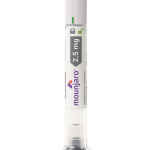
Roughly 20% of Americans are diagnosed with skin cancer at some point in their lives, but it’s not inevitable. Skin cancer is not only the most common cancer, it’s also the most preventable. Most of the time, too much sun exposure is to blame. “When it comes to skin cancer, prevention is key,” surgical oncologist Dr. Jeffrey Farma said in a news release. “My goal is to ensure patients can enjoy their lives, including time in the sun, while being mindful that even a small skin lesion can quickly escalate into a very serious issue.” Even if you don’t burn easily, whether you’re young or old, you can still get skin cancer, Farma emphasized. Since 2011, rates of the most malignant skin cancer — melanoma — have risen roughly 7% a year, and skin cancer rates have held steady among young people. “We have seen young patients in their 20s who tan a lot and use tanning salons and are unfortunately diagnosed with skin cancer. That diagnosis can completely change their life,” said Farma, co-director of the Melanoma and Skin Cancer Program at Fox Chase Cancer Center in Philadelphia. He is also state chairman of the American College of Surgeons Commission on Cancer. To protect yourself while enjoying time outdoors, Farma offers these tips: Use sunscreen properly: Wear a broad-spectrum sunscreen with an SPF of… read on > read on >





















-300x200.jpeg)
-300x213.jpeg)














